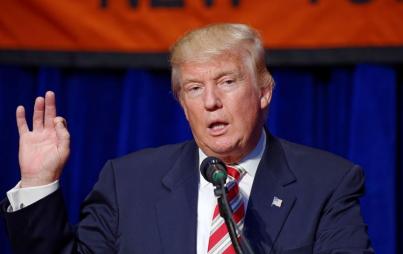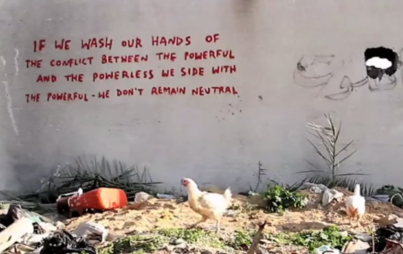
Scarlett Johansson’s recent deal with SodaStream (and ) as its new spokesperson sparked a immediately incensed reaction from one of the star’s preferred poverty-fighting NGOs, Oxfam. The organization raised very vocal concerns that Johansson was representing a company that operates from the occupied West Bank territory — which is of course, in direct conflict with the nonprofit’s stance on Palestinian oppression in the region.
Oxfam is a human rights organization. They cannot maintain an ambassador if they are involved in a complicit Israeli company built in a settlement. -Omar Barghouti, boycott campaign founder
Johannson swiftly responded through her spokesperson, who explained Scarlett had respectfully decided to end her ambassador role due to the “difference of opinion in regards to the boycott, divestment and sanctions movement.” Sounds like the Her star is sticking to her (or at least Israel’s) guns!
All of this had us questioning the implication — should celebrities be expected to make their personal branding decisions based on other entities, political or otherwise? What responsibility do they have to reconcile their public and private selves and take a stance on controversial foreign policy?
Oxfam in particular covers a huge range of issues, and it’s reasonable to expect that not everyone who donates, volunteers for, or even represents the organization agrees with NGO on how to handle each and every conflict. Universally positive ideals seem to serve as the foundational element however: helping people is good, hurting people is bad, and the only way to spread the good word is to foster an ongoing dialogue between all parties.
It should also be said that while SodaStream calls its factory in the West Bank a “model for peace” (the company does not exclude Palestinians from employment), allegations of bias and racism have been reported.
So, Oxfam and Johansson aren’t seeing eye to eye — what’s the best way to move forward?
We happen to think any chance to stir the pot is an opportunity worth taking, so why not an open dialogue, or even a debate? Johansson’s vague response citing a “difference of opinion” doesn’t tell us much or help Oxfam supporters who might be interested in reevaluating their individual stances on the issue in the wake of all this dram.
While incessantly mentioned in our frothing news cycle, this SodaStream sh*tstorm has failed to motivate us as day-to-day Americans to ask the hard questions — should our country really be supporting Israel? What does a business model in one of the most war-torn regions of the world look like? How does the rest of the world contribute to this pseudo-functioning economy?
Rather than addressing any of these really uncomfortable quandaries, both Johansson and Oxfam resigned to congenial nods and smiles in the public sphere — neatly-issued statements of mutual respect does not a dialogue make.
Need a little gasoline on your smoldering Monday malaise? Here's a quick n' dirt round-up of some of the worst companies in America from moral depravity to downright shoddy service. Feeling fierce? Check out the entire study – Harris Interactive's Reputation Quotient Survey for 2013, which evaluates 60 American companies on six categories: social responsibility, emotional appeal, products & services, workplace environment, financial performance, and vision & leadership – right here.
Image: Wikimedia






